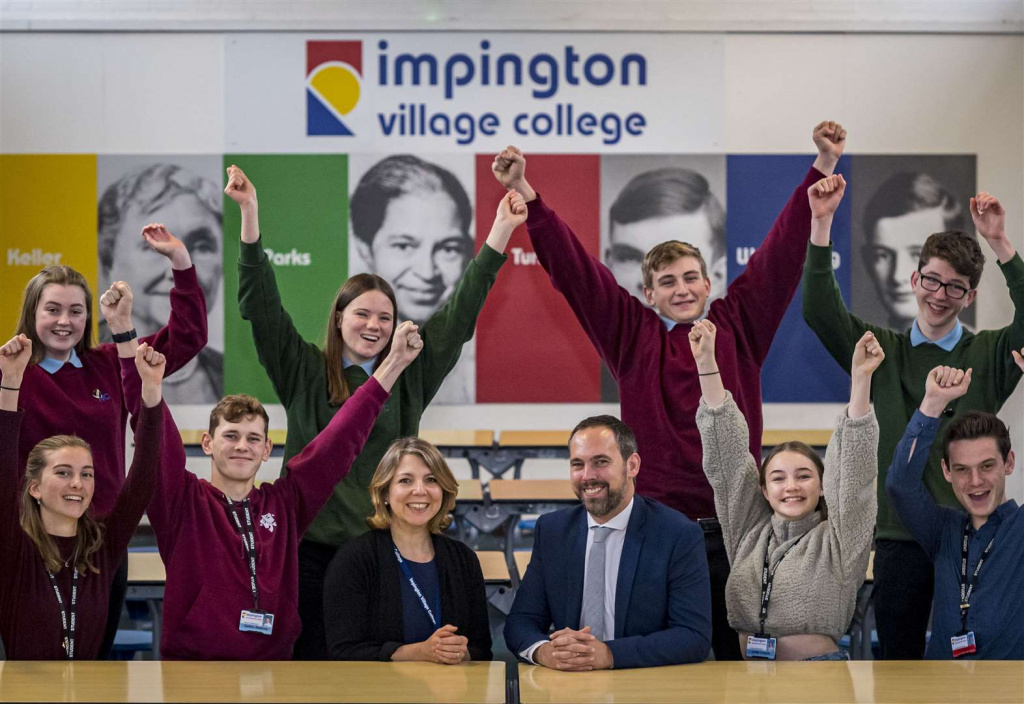
When visionary educationalist, Henry Morris, first drew up plans for the formation of Impington Village Collage, he did so with a belief that formal and informal education should be a lifelong process. His vision still forms a key part of our College ethos and around 30 years ago, we recognised that offering the International Baccalaureate (IB) is the best way in which we can develop students into lifelong learners who want to improve the world around them.
At the time, we were one of the first UK state schools to offer the IB Diploma Programme (DP); the post-16 curriculum offering which strives to ensure students flourish academically, physically, emotionally and ethically.
Recognising that some students prefer practical, career-related study over traditional academic learning, we then grew our IB offering with the introduction of the Career-related Programme (CP), after its launch 10 years ago. The CP enables students to combine hands-on experience with the academic rigour of the DP, and so provides them with the skills and knowledge to successfully transition into Higher Education, apprenticeships or employment.
Earlier this year, we were delighted to expand our IB offering even further and received authorisation to deliver the Middle Years Programme (MYP) for our Year 7 – 9 students. This means that our students study the programme for three years before undertaking their GCSEs, and positions Impington Village College as the first UK state school for ages 11 – 18 to offer three IB programmes. It has been a long process to get to this point, but we truly believe that we are now providing our students with the best possible chance to thrive in life beyond the College walls.
Teaching students to ‘learn how to learn’